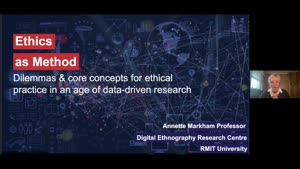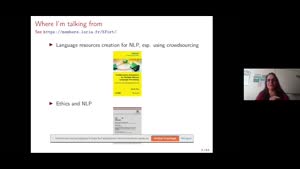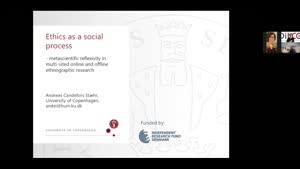Memes, selfies, stories, short form videos…: Technographic reflections on the age of small story formats: DiLCo Lecture Series 2024 (20 June) - Alexandra Georgakopoulou - Universität Hamburg
- Lecture2Go
- Videokatalog
- F.5 - Geisteswissenschaften
- Sprache, Literatur, Medien (SLM I + II)
- Digital language variation in context (DiLCo)
Videokatalog
3998 Aufrufe
20.06.2024
Memes, selfies, stories, short form videos…: Technographic reflections on the age of small story formats: DiLCo Lecture Series 2024 (20 June)
Alex Georgakopoulou is Professor of Discourse Analysis & Sociolinguistics & Co-Director of the Centre for Language, Discourse & Communication, King’s College London. She has developed small stories research, a paradigm for the analysis of everyday life storytelling and identities, with a current focus on social media. Recent publications include: ‘Quantified storytelling: A narrative analysis of metrics on social media’ (with Stefan Iversen & Carsten Stage, 2020, Palgrave) & ‘Small stories research: Tales, tellings and tellers across contexts’ (2023, co-ed. with Korina Giaxoglou & Sylvie Patron, Routledge). Her co-authored (with Anna De Fina) book Analyzing narratives online is forthcoming with Routledge. She is the Co-Editor of the Routledge Research in Narrative, Interaction & Discourse Series.
Stories on social media platforms, more than any other communication mode, have increasingly become designed, curated features, with a bundling of pre-selections and templates. Connected with this, is an unprecedented -in speed- development of normative, typified small stories on different platforms, where the requirement for sharedness amongst users who may partake in transient acts of communication, is superseded by the recognizability of what may be typical. In this lecture, I set out to show how we can study this typification of stories online, with what kinds of reimaginings of methods and analysis from contextual research on communication. I specifically draw on the ethnomethodological concept of formatting, as reworked by the late Jan Blommaert (2020) for the study of online communication, and I synergize it with a technographic method and a multi-modal small stories & positioning micro-analysis of platformed stories. Drawing on a real-time tracking of stories as socio-technical engineered features on all major Western platforms, I present the key-features of sharing-life-in-the-moment, as the over-arching formatted practice of storytelling online, its links with authenticity, and its latest reconfigurations on TikTok short form videos. In doing so, I hope to show what a practice-based approach to (narrative) communication in the (post)digital, GenAI-infiltrated era should look like.
Please note that the slides have been made available as a PDF, downloadable below under "Download"/"Herunterladen".
DiLCo Lecture Series 2024 aims to showcase cutting edge international research on digitally language and communication by both senior and younger researchers from across the world. We wish to present research that explores digital language and communication by drawing on key concepts and topics in socio-cultural linguistics, such as community, context, identity, mediated interaction, multimodality, and linguistic change. We particularly welcome presentations of innovative methods that cut across traditional disciplinary boundaries.
---
DiLCo (‘Digital language variation in context’) is a 3-year international research network initiated in 2021 at the University of Hamburg. The network brings together researchers from Europe and USA with expertise in computational, interactional, and ethnographic approaches to digital language and linguistics. It aims to provide a platform for the development of interdisciplinary ideas in digital language and communication research, and for early-career capacity building.
---
DiLCo (‘Digital language variation in context’) is a 3-year international research network initiated in 2021 at the University of Hamburg. The network brings together researchers from Europe and USA with expertise in computational, interactional, and ethnographic approaches to digital language and linguistics. It aims to provide a platform for the development of interdisciplinary ideas in digital language and communication research, and for early-career capacity building.
Technischer Support
Bitte klicken Sie auf den nachfolgenden Link und füllen Sie daraufhin die notwendigen Felder aus, um unser Support-Team zu kontaktieren!
Link zu der RRZ-Support-Seite

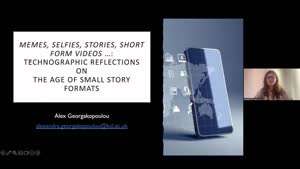
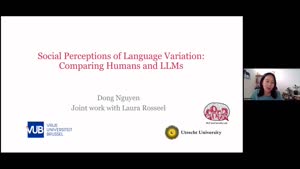
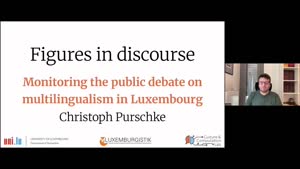
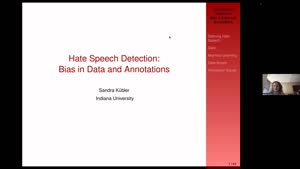
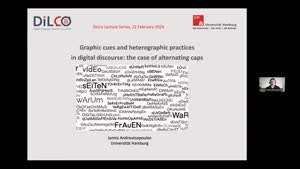
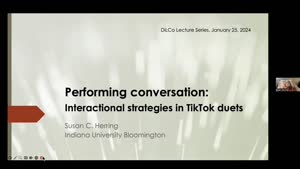
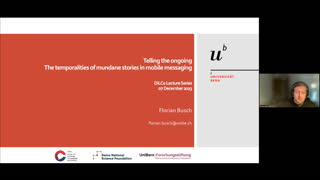
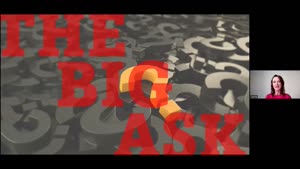
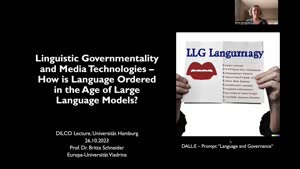
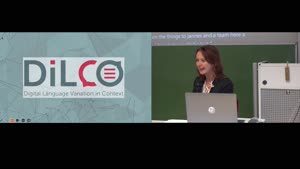
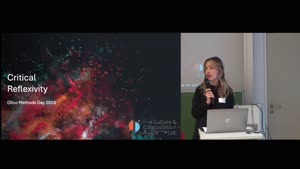
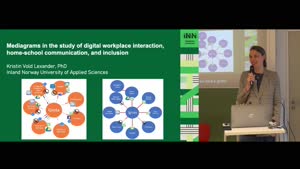
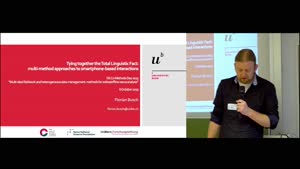
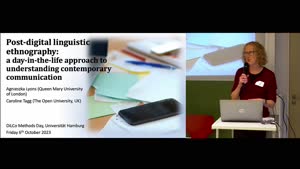
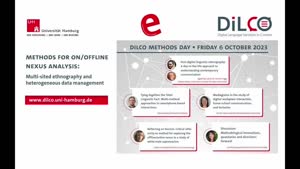
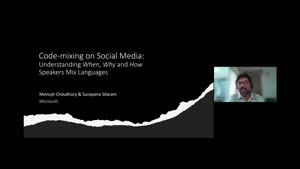
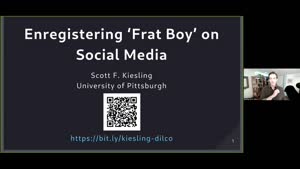
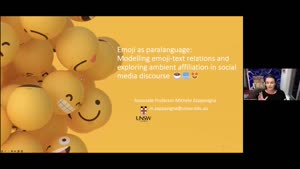
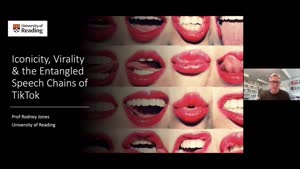
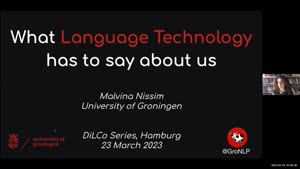
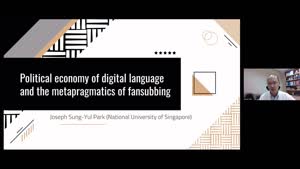
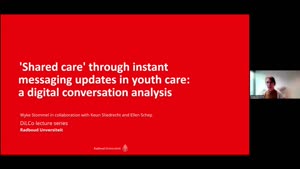
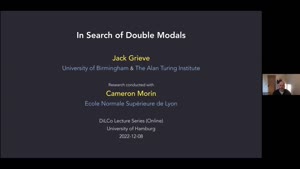
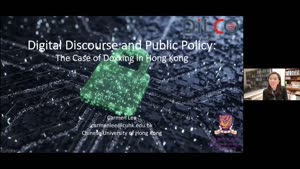
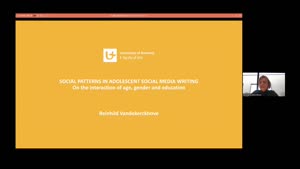
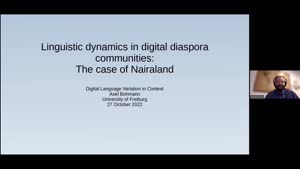
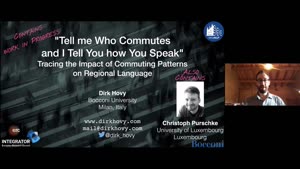
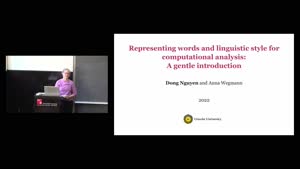
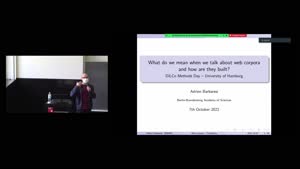
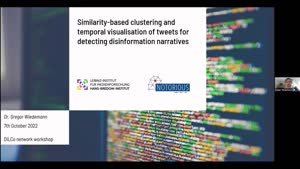
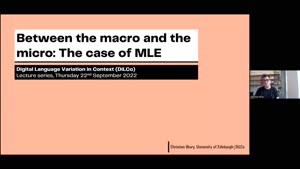
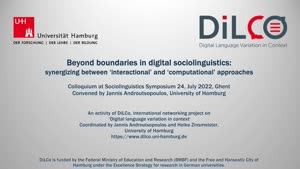
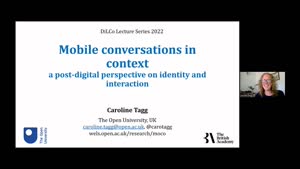
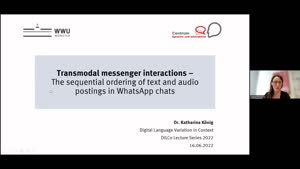
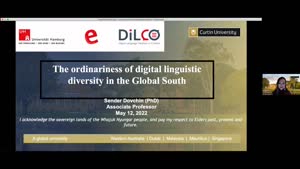
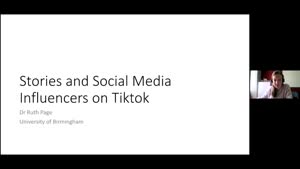
![Miniaturansicht - Graphic Prosody and political discourse on Greek Reddit [Presentation in Greek]](https://lecture2go.uni-hamburg.de/images/00.000_video-61074_2022-03-30_18-30_m.jpg?lastmodified=1663761108652)
